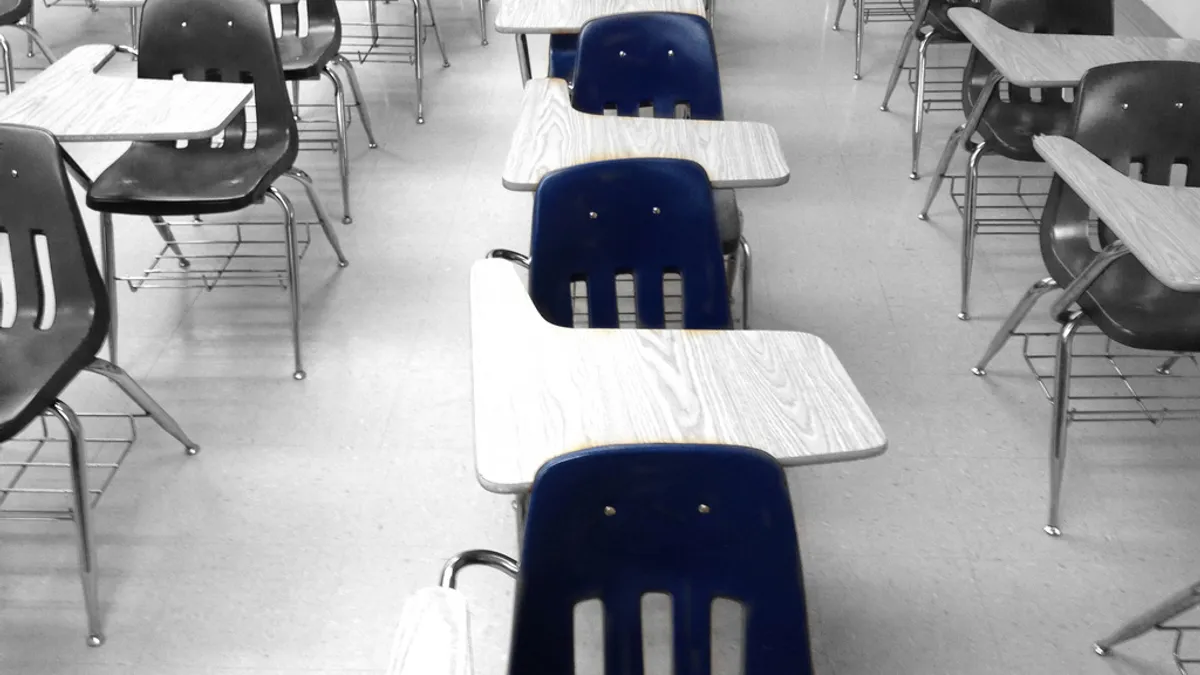Dive Brief:
-
The next testing cycle of the National Assessment of Educational Progress will be delayed until 2022 because too many students are attending school remotely and because in-person testing conditions are constrained due to the pandemic, the National Center for Education Statistics said in its Nov. 25 announcement.
-
NCES officials, school administrators and others had hoped the national-level assessments for reading and math would progress this year so education stakeholders could continue gauging trends in students’ knowledge of core academic subjects, but they now acknowledge the difficulty of obtaining reliable results amid continued educational disruption.
-
At the state and local levels, officials are continuing to evaluate options for assessing students with standardized tests this school year.
Dive Insight:
The announcement from NCES Commissioner James Woodworth included state-level details of high COVID-19 risk levels and the large portions of students identified for the testing cycle who are learning remotely or in buildings that enforce social distancing measures or limit visitors, including testing proctors.
“If we attempted to move forward with a collection in 2021 and failed to produce estimates of student performance, we would not only have spent tens of millions of dollars, but also will not by law be able to conduct the next grades four and eight reading and mathematics assessments until 2023,” Woodworth said in a statement posted to the NCES website.
A representative sample of students from every state take the NAEP exams, rather than the entire population of students. NCES had planned to administer the 2021 NAEP to a smaller but still representative sample of students in grades 4 and 8 for the reading and math assessments, but national assessments for grade 8 U.S. history and civics and the age 17 long-term trend were already being postponed, according to earlier NCES announcements.
Carissa Moffat Miller, chief executive officer of the Council of Chief State School Officers, said in a statement that the council supports the decision to delay the NAEP. “I recognize this was not an easy decision, but I believe it is the right one based on what we know today about this virus and its impact on schools,” Miller said.
State and local school administrators have been contemplating how to administer standardized tests safely and equitably this school year. In a Sept. 3 letter to state school chiefs, U.S. Secretary of Education Betsy DeVos said that although waivers for the testing requirement in the Every Student Succeeds Act were granted in the spring, states should not expect federal waivers for summative assessments this school year.
In the NCES announcement, Woodworth said the decision to postpone the 2021 NAEP may offer states time for conducting their assessments. Because state assessments are administered by school staff and existing equipment, the risks for state-level testing are not as high compared to NAEP testing, which use shared equipment and outside proctors, wrote Woodworth.
“This state-level data can serve as a bridge until Spring 2022 when NCES will likely be able to conduct the national NAEP assessment in a manner that has sufficient validity and reliability,” Woodworth wrote.















